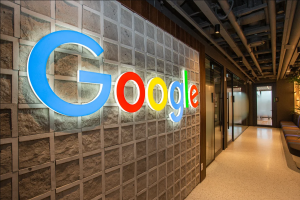Goodbye Internet freedom : Libel clause in Philippine Cybercrime Prevention Act deemed constitutional
![]() In September 2012, the Philippines put into effect the Republic Act 10175, or the Cybercrime Prevention Act of 2012. Before this law, authorities were powerless against cybercriminals. It deals with child pornography, hacking, cybersex, cyber squatting and other illegal online activities. But many consider the new law to be inherently flawed and rallied against it, especially with its inclusion of a libel clause that prevents people from making negative comments about government policies or officials, lest you want to be jailed for 12 years.
In September 2012, the Philippines put into effect the Republic Act 10175, or the Cybercrime Prevention Act of 2012. Before this law, authorities were powerless against cybercriminals. It deals with child pornography, hacking, cybersex, cyber squatting and other illegal online activities. But many consider the new law to be inherently flawed and rallied against it, especially with its inclusion of a libel clause that prevents people from making negative comments about government policies or officials, lest you want to be jailed for 12 years.
Because of the uproar, RA 10175 was suspended and a 120-day Temporary Restraining Order was put in place. In January 2013, those who lobbied against the law and those who support it, presented their oral arguments in front of Supreme Court judges. And now, after months waiting for the outcome, the Supreme Court has finally given its decision regarding the constitutionality of some of the provisions.
The Supreme Court ruled that the libel clause is constitutional which means anyone who engages in defamatory posts can be sent to jail. But there is somewhat of a silver lining in the SC’s ruling, as it stated that only the original author can be accused and sent behind bars. Those who like, share or comment on the post will not be held liable.
Still, isn’t this a bit too much? The internet is supposed to be free, and deeming the libel clause constitutional is just absurd. Is the government, its agencies and officials, that sensitive that they cannot take criticism? Where will people voice their concerns and angst against the government?
People in the Philippines are not happy with the SC’s decision.
Decriminalizing libel
.
Bayan Muna partylist representative Neri Colmenares stated in an interview that, “Libel in many countries is no longer criminal. Here, it’s criminal and worse, it’s now considered a crime on the Internet. The Cybercrime Law can really stifle the use of technology and threaten the right to free press & freedom of expression.”
Funny thing is, many government officials now have Facebook and Twitter accounts, or even have their own webpages, claiming they are a way to hear directly from the people so they know what they can do to help them. With the libel clause approved, how will people now voice their opinions?
What I see happening in the future is a surge in dummy Facebook, Twitter and email accounts, a move that would hinder government officials from finding out the real identity of those who want to voice out their harsh opinions about the government.
Aside from the ruling on the libel clause, the SC also upheld the penalties for those who aid and abet cyber offenses such as illegal access and illegal interception, data and system interference, misuse of devices, cyber squatting, computer-related fraud and identity theft, and cybersex.
As for the aiding and abetting child pornography, sending and creating unsolicited commercial communications or spam are not punishable measures under this law as there are already penalties in place somewhere else. Putting these measures into the cyber law violates the constitution.
- A legal battle
Not all government officials agree with the Cybercrime Prevention Act, as they view it as something that oppresses freedom on the Internet. Terry Ridon, a congressman representing the youth sector in parliament, was not happy with the ruling and vowed to challenge the SC’s decision.
“The fight against e-Martial Law is far from over. We call on everyone to up the ante and once again show our collective dissent against this repressive law,” Ridon said.
“While the high court reportedly aimed to strike a balance between the protection of civil liberties and government control, we still believe that the law is potent enough to impede our freedom of expression,” he added.
photo credit: Gadjo Cardenas Sevilla via photopin cc
A message from John Furrier, co-founder of SiliconANGLE:
Your vote of support is important to us and it helps us keep the content FREE.
One click below supports our mission to provide free, deep, and relevant content.
Join our community on YouTube
Join the community that includes more than 15,000 #CubeAlumni experts, including Amazon.com CEO Andy Jassy, Dell Technologies founder and CEO Michael Dell, Intel CEO Pat Gelsinger, and many more luminaries and experts.
THANK YOU













